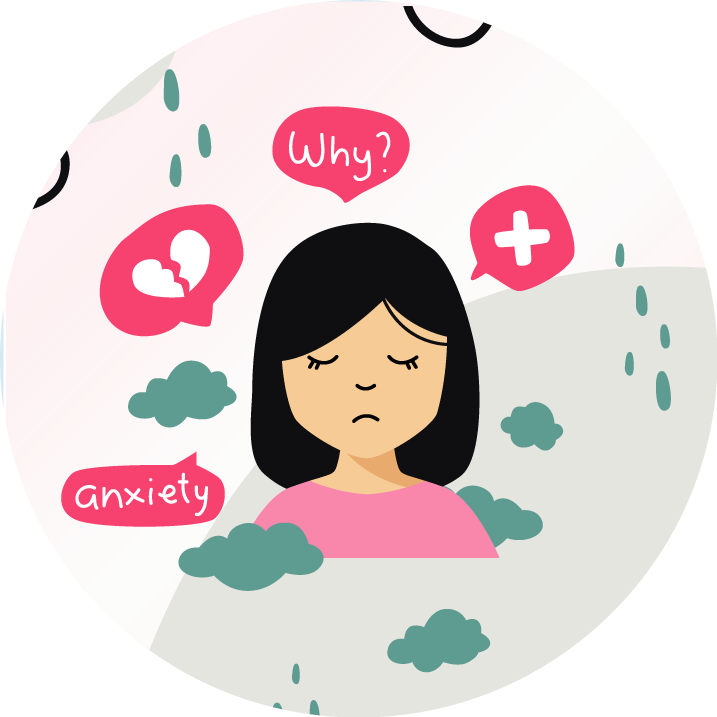How to Communicate with Your Partner about Your Mental Health Diagnosis

How to Communicate with Your Partner about Your Mental Health Diagnosis
August 01 2025 TalktoAngel 0 comments 357 Views
Being open about mental health is essential, especially within a romantic relationship. If you’ve recently received a diagnosis for a mental health condition, you might be unsure how to bring it up with your partner. You may worry about their reaction, fear of being judged, or not knowing how much to share. Despite these concerns, having this conversation is a vital step toward building understanding and emotional support in your relationship.
Why Talking About Mental Health Matters
Mental health conditions can affect how a person thinks, feels, behaves, and relates to others in everyday life. When you're in a committed relationship, your partner needs to be aware of what you're going through so they can understand and support you better. According to NAMI (2021), opening up about mental health can help reduce stress, stigma, increase connection, and improve outcomes in both personal and relational contexts. That said, every relationship is unique, and how and when you decide to share depends on your circumstances.
Preparing to Share Your Diagnosis
Before discussing your diagnosis with your partner, take a moment to reflect and prepare.
1. Educate Yourself First
Take the time to understand your diagnosis—what it means, the symptoms, how it affects your daily life, and possible treatment options. This helps you explain it clearly and answer any questions your partner might have.
Tip: Consider writing down important points so you feel more organised during the conversation.
2. Pick the Right Moment
Choose a quiet, private time to talk, preferably when both of you are calm and not distracted. Avoid discussing serious topics in the middle of arguments or stressful situations.
3. Goal-setting
Think about what you hope to get from the conversation—do you want your partner to be more understanding, more involved in your treatment, or simply to be informed?
How to Start the Conversation
When the time feels right, share your diagnosis with honesty and kindness, at your own pace.
1. Be Honest and Compassionate
You might begin with something like, “There’s something important I’d like to share with you about my mental health.” Use “I” statements to keep the focus on your experience, which helps avoid defensiveness.
Example:
“I’ve been diagnosed with anxiety, and I wanted to share this with you because I value our relationship and want you to understand what I’m going through.”
2. Give Them Time to Process
Your partner may not fully understand your condition right away, and that’s okay. They might need some time to process what you've shared and respond with care.
3. Avoid Overwhelming Them
Share essential details without diving too deep all at once. Talk about how the condition affects your life and how they can support you.
Example:
“Sometimes I feel overwhelmed in crowded places, and I may need a few minutes alone to calm down. It helps me a lot when I don’t feel pressured during those moments.”
4. Offer Credible Resources
If they’re open to learning more, suggest trusted sources where they can read up on your condition. This helps promote understanding and empathy.
How TalktoAngel Can Support You
TalktoAngel is a digital mental health platform that helps you connect with qualified therapists, counsellors, and psychologists — all in one convenient place. It can be a valuable tool for both individuals and couples navigating mental health challenges together.
1. Individual Therapy
You can work one-on-one with a licensed therapist to explore your feelings, build confidence, and learn how to approach difficult conversations with loved ones.
TalktoAngel offers professional couples therapy to help you and your partner improve communication, resolve misunderstandings, and strengthen your emotional intimacy & connection.
3. Educational Content
Their platform includes blogs, videos, and self-help tools to help you and your partner better understand mental health issues and strategies for managing them.
4. Convenient Online Sessions
TalktoAngel offers convenient, private, and flexible online therapy sessions that fit your schedule, all from the comfort of your own space. Whether you're in different locations or simply prefer online care, it’s a great option for busy lifestyles.
Maintaining Open Communication After the Talk
Having the first conversation is just the beginning. Here are a few ways to keep communication healthy going forward:
- Check in regularly. Let your partner know how you’re doing and ask how they feel, too.
- Respect and maintain healthy boundaries. Be clear about what kind of support is helpful and what may not be.
- Be patient. Your partner might need time to fully understand your diagnosis and how to support you effectively.
- Grow together. Encourage each other to learn and seek help when needed, either individually or as a couple.
Conclusion
Talking to your partner about a mental health diagnosis can feel intimidating, but it’s also an opportunity to create deeper trust and connection. With preparation, honesty, and support, you can navigate this important step in your relationship.
Professional support, like the services offered by TalktoAngel, can provide guidance and confidence, helping you and your partner build a strong foundation for mutual understanding and care.
Contributed By: Dr. (Prof.) R. K. Suri, Clinical Psychologist and Life Coach, &. Ms. Riya Rathi, Counselling Psychologist.
References
- American Psychological Association. (2020). Publication manual of the American Psychological Association (7th ed.). American Psychological Association.
- National Alliance on Mental Illness. (2021). How to talk to your partner about mental health. https://www.nami.org/Blogs/NAMI-Blog/January-2021/How-to-Talk-to-Your-Partner-About-Mental-Health
- Mayo Clinic. (2023). Mental illness - Symptoms and causes. https://www.mayoclinic.org/diseases-conditions/mental-illness/symptoms-causes/syc-20374968
Leave a Comment:
Related Post
Categories
Related Quote

“Treat a man as he is and he will remain as he is. Treat a man as he can and should be and he will become as he can and should be.” - Stephen R

“Remember: the time you feel lonely is the time you most need to be by yourself. Life's cruelest irony.” - Douglas Coupland

“Anxiety is a thin stream of fear trickling through the mind. If encouraged, it cuts a channel into which all other thoughts are drained.” - Arthur Somers Roche

“You say you’re ‘depressed’ – all I see is resilience. You are allowed to feel messed up and inside out. It doesn’t mean you’re defective – it just means you’re human.” - David Mitchell, Cloud Atlas

“Stress is an ignorant state. It believes that everything is an emergency. Nothing is that important.” - Natalie Goldberg
Best Therapists In India

























SHARE